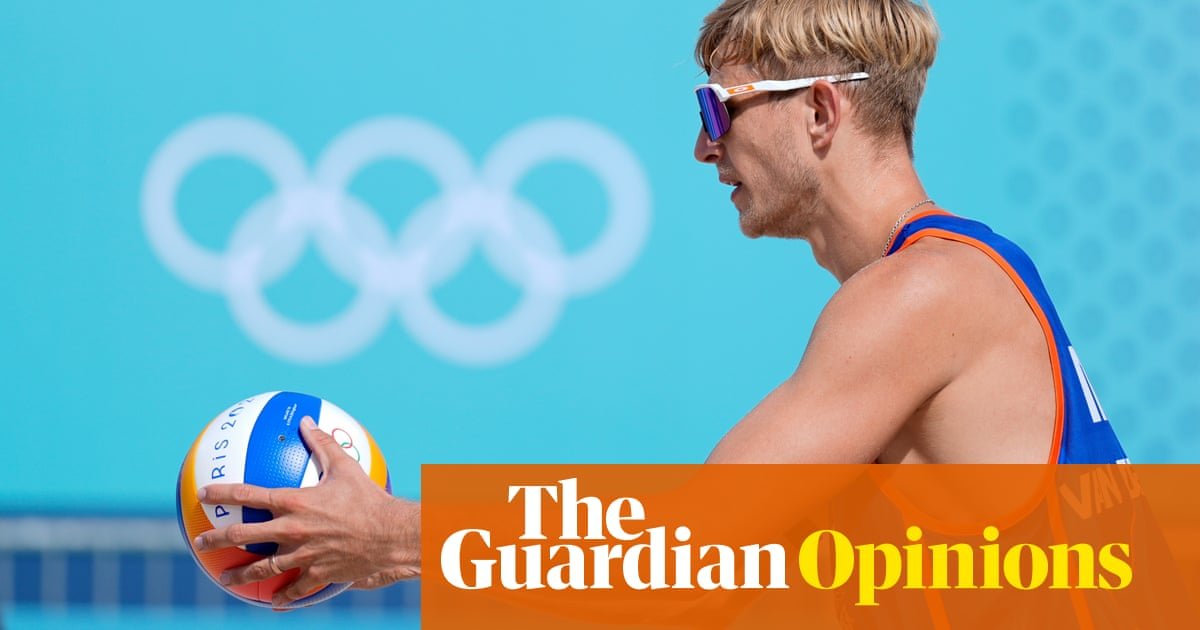For weeks now, controversy has surrounded the Dutch beach volleyball player Steven van de Velde, who was sentenced to four years in prison in England in 2016 for raping a 12-year-old girl when he was 19. He has served his time and openly expressed regret for what he called “the biggest mistake of my life”. But is that enough for him to be allowed to represent the Netherlands at the Olympic Games, a contest in which participants are also expected to serve as role models?
International media and support groups for victims of sexual violence certainly do not think so. Many condemned the decision to let Van de Velde play, and even called on the International Olympic Committee to investigate how he had been allowed to compete.
Remarkably, in the Netherlands itself, the case has not caused much commotion. The news hasn’t made the front pages and there were no columnists or opinion-makers expressing astonishment or indignation.
Last week, the Team Netherlands chef de mission, Pieter van den Hoogenband, expressed mild surprise at the timing of the uproar, pointing out that Van de Velde had already returned to international sports in 2017, and played in European and World championships. The Netherlands’ Olympic committee, which selected Van de Velde, said in a statement that he had served his sentence, completed an extensive rehabilitation programme and experts had concluded there was no risk of him reoffending. The volleyball player had shown that he had “grown and positively changed his life”, it said.
But why the muted reaction in the Netherlands? One legal distinction is that Van de Velde is unlikely to have been convicted of rape had he stood trial in the Netherlands rather than England. In England, sex with a 12-year-old is rape, regardless of the circumstances: an under-16 cannot legally consent. But after he was extradited to the Netherlands, having serving almost a year of his prison sentence, he was released after less than a month. Under Dutch law, his crime was deemed to be the lesser offence of ontucht, sexual acts that violate social-ethical norms.
On social media, there are of course Dutch people arguing that Van de Velde should not compete, with others going much further in their imagined punishments. There are also those, such as the court reporter Chris Klomp, who have argued that he is not the “sex monster” or “groomer” he has been made out to be in some English-language media.
Klomp wrote on X that, although what Van de Velde did was utterly wrong and punishable, he did not physically force the girl to have sex with him. He wrote: “The absence of coercion (other than the age difference) is also evident from the fact that the British court acquitted him of grooming. It was not his intention to ‘persuade her’ into sexual acts.”
Klomp, along with the Dutch sports authorities and many other Dutch people, believes that now that Van de Velde has served his sentence and publicly expressed remorse, he is “of course free to move on with his life”.
But there is a difference between moving on with one’s life and representing your country at the most prestigious sporting event in the world, where you are also supposed to set an example. Which raises the question: what message does the Netherlands send to the world by allowing itself to be represented by a man convicted of a sexual offence? It is obvious that not much thought has been given to how this might affect victims of sexual abuse.
Because there is another, even more critical question: How does all of this impact the woman involved? Van de Velde has picked up the pieces of his life, but for victims of sexual abuse it is very difficult to do the same. It must be hard for her to relive everything that happened, through Van de Velde’s participation in the Olympic Games and all the conversation around it.
Taking into account the victim’s perspective was also what Sara Alaoui, director of the Safe Space Club, an organisation supporting victims of sexual violence, called for during a programme on Dutch radio. She felt that Van de Velde hadn’t demonstrated enough of that in his statements to the Dutch press. And besides, she argued, expressions of regret alone were not sufficient when aiming for such a prestigious second chance in life: he should show by his actions that he truly deserved that second chance. For instance, by using the significant platform he now had as an Olympic athlete to talk openly and honestly about the impact of sexual abuse on victims.
Alaoui cited the example of a unique therapy group in the Dutch city of Eindhoven, where men who have been involved in domestic violence help other men who are guilty of the same. “It would be very much to his credit if he would commit himself to something like that,” she said.
During this extremely heated global debate, this was one humane and constructive contribution.
-
Renate van der Zee is a Dutch writer and journalist
-
Information and support for anyone affected by rape or sexual abuse issues is available from the following organisations. In the UK, Rape Crisis offers support on 0808 802 9999 in England and Wales, 0808 801 0302 in Scotland, or 0800 0246 991 in Northern Ireland. In the US, Rainn offers support on 800-656-4673. In Australia, support is available at 1800Respect (1800 737 732). Other international helplines can be found at ibiblio.org/rcip/internl.html
